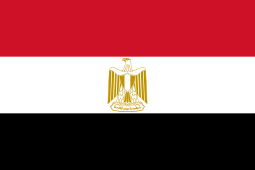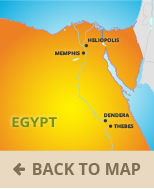Islamic Period and Modern Times Overview
- Neolithic Period: 4500-3000 BCE
- Early Dynastic: 3000-2650 BCE
- Old Kingdom: 2650-2150 BCE
- 1st Intermediate Period: 2150-2040 BCE
- Middle Kingdom: 2040-1640 BCE
- 2nd Intermediate Period: 1640-1550 BCE
- New Kingdom: 1550-1070 BCE
- 3rd Intermediate Period: 1070-712 BCE
- Saite and Late Periods: 712-332 BCE
- Greco-Roman Period: 332 BCE-642 CE
- Coptic Period: 395-642 CE
- Islamic Period and Modern Times: 642 CE-Today
- Neolithic Period: 4500-3000 BCE
- Early Dynastic: 3000-2650 BCE
- Old Kingdom: 2650-2150 BCE
- 1st Intermediate Period: 2150-2040 BCE
- Middle Kingdom: 2040-1640 BCE
- 2nd Intermediate Period: 1640-1550 BCE
- New Kingdom: 1550-1070 BCE
- 3rd Intermediate Period: 1070-712 BCE
- Saite and Late Periods: 712-332 BCE
- Greco-Roman Period: 332 BCE-642 CE
- Coptic Period: 395-642 CE
- Islamic Period and Modern Times: 642 CE-Today
The Islamic Period and Modern Times
642 CE – Today
The Arab general Amr Ibn el-As liberated Egypt from the Romans in 642 CE. Jews and Christians welcomed the Muslims as a fellow “People of the Book.”
The French entered Egypt under Napoleon in 1798 but were defeated by the British and the Turks in 1801.
In 1805, Ottoman (Albanian) Commander Muhammad Ali established a dynasty that ruled until 1952.
The Suez Canal was built between 1859 and 1869. This project nearly bankrupted Egypt and led to a gradual British takeover. In 1882, British troops defeated the Egyptian army and took control of the country. In 1914, Britain formally made Egypt a British protectorate. This period was a golden age of science, but a dark time for Egypt. Archaeologists excavated at will but banned native Egyptians from the profession.
The independent-minded Egyptians resisted the British through active and passive methods. In 1922, Egypt gained its independence, although British influence remained strong until 1953.
In 1953, following a coup, the country became a republic. Today, Egypt’s official name is the Arab Republic of Egypt.
Monuments: Mosque of Amr Ibn al-As, Muhammad Ali Mosque, Saladin Citadel on Pharaoh’s Island, The Citadel of Cairo, The Khanqah & Mausoleum of Sultan Faraj Ibn Barquq and The New Library of Alexandria.
Aritfacts from the Islamic Period and Modern Times


